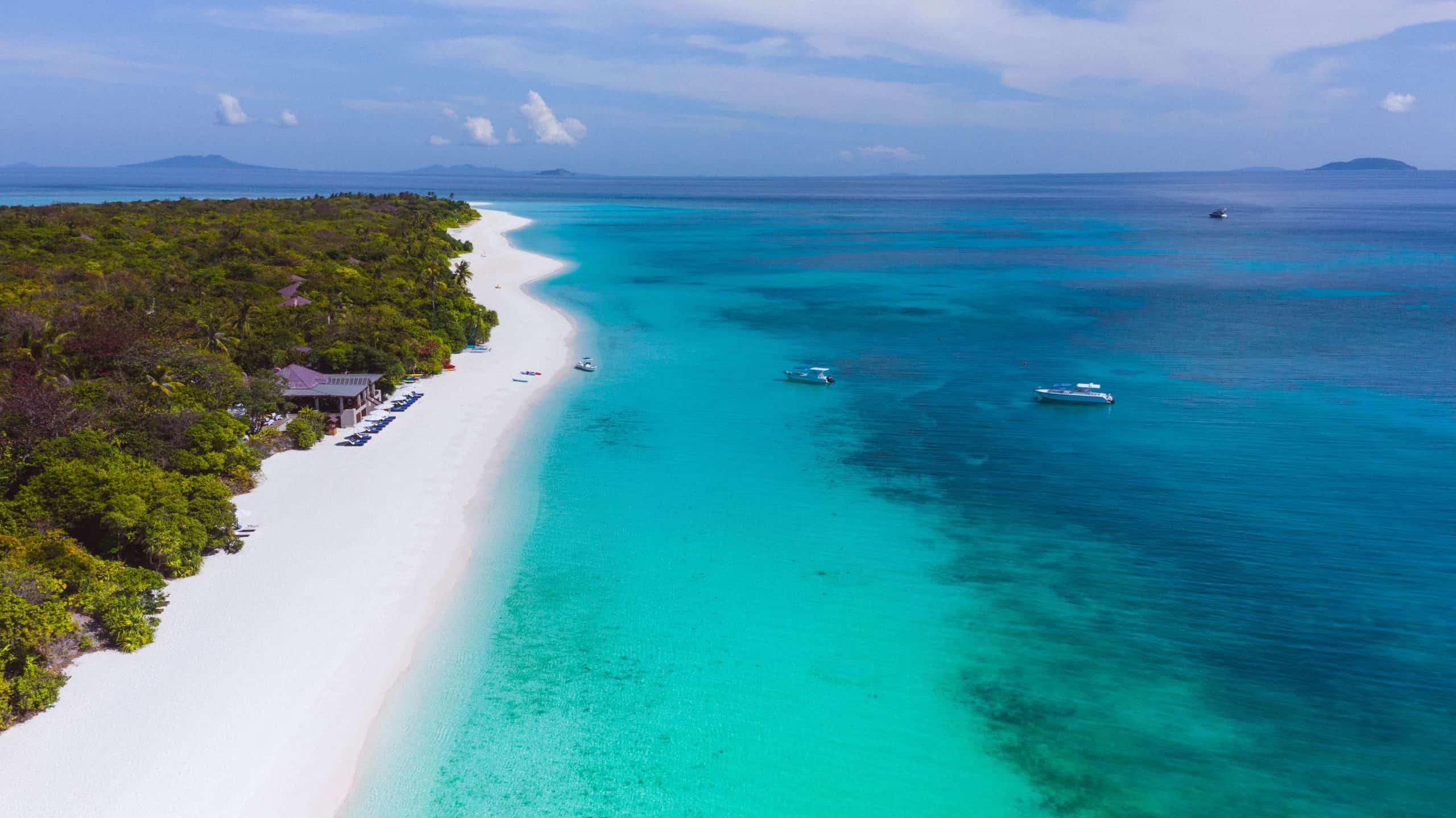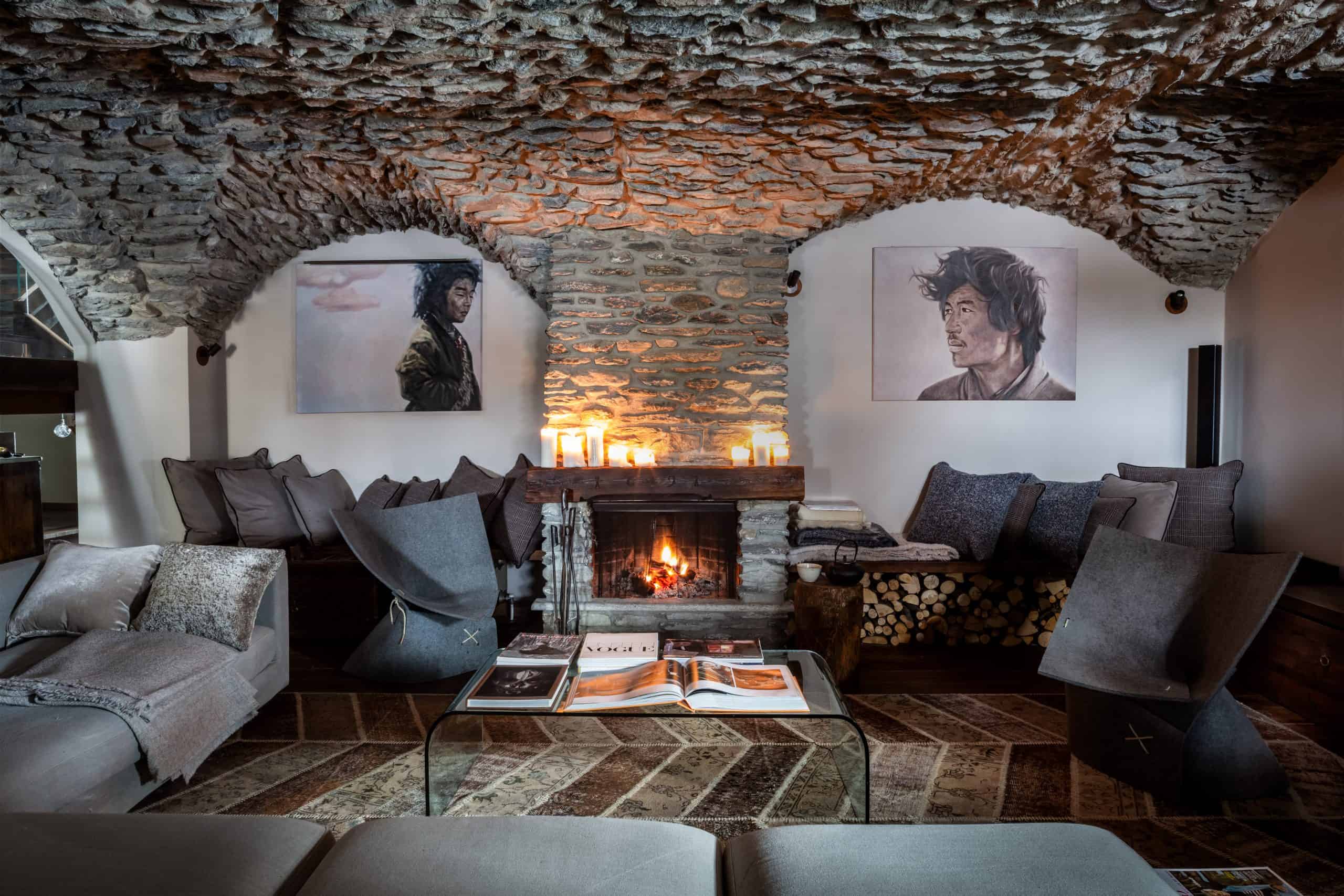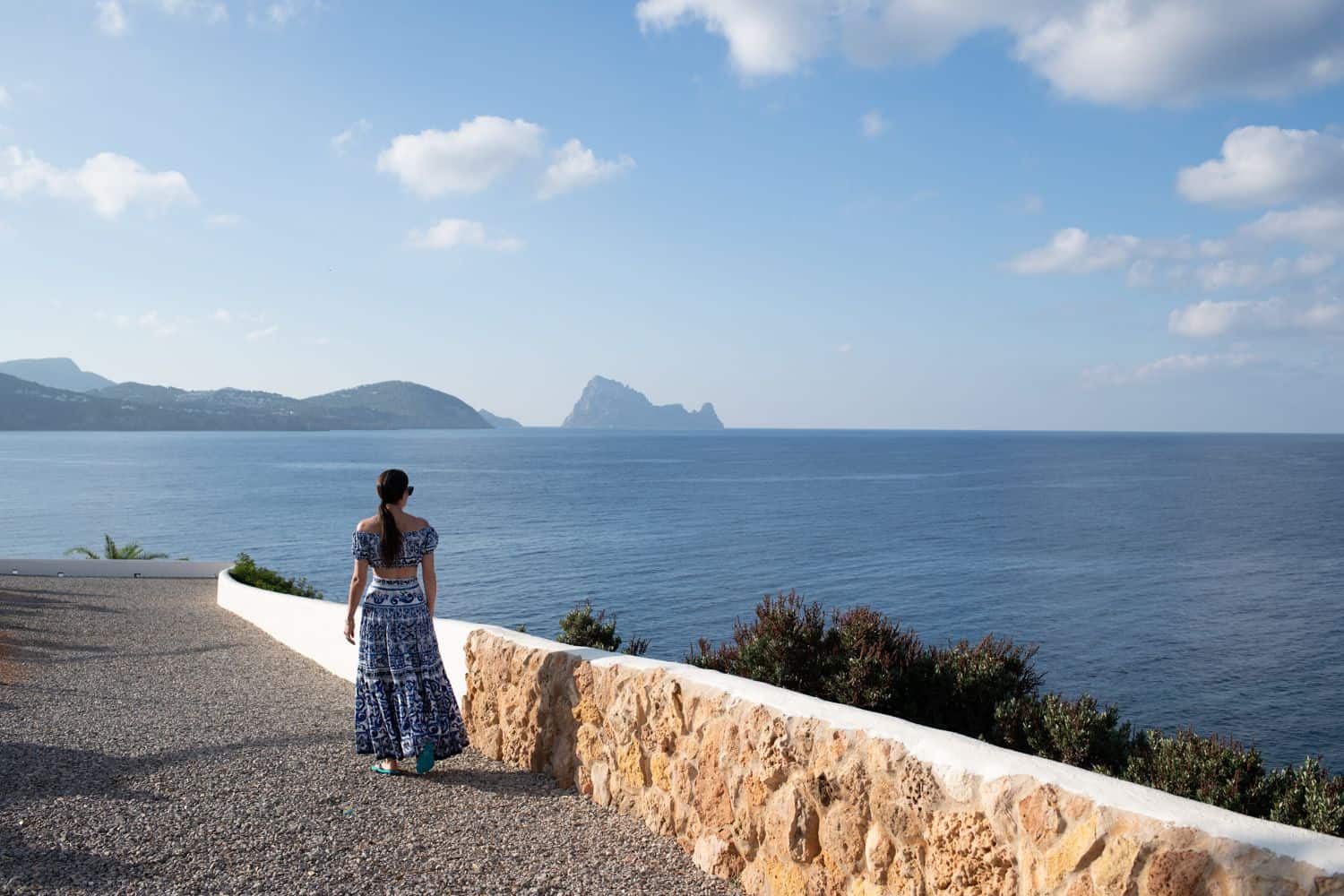Tipped to be one of the biggest wellness trends of the coming year, ‘J-Wellness’ is taking the wellness world by storm, with everything from forest bathing to Blue Zone Okinawan diets coming to the fore. We chat with Yuki Kiyono, the Aman Group Director of Spa Operations, on how Japan’s wellness traditions are going global and the newest Aman property in Japan, Aman Kyoto.

Tell us a little bit about yourself. Did you always want to work in wellness? As a young girl in Japan I wanted to be a geisha [traditional Japanese hostess]: I enjoyed the thoughtfulness, the tradition and the unique culture. As I grew up, I became more interested in medicine: my father’s business was in pharmaceuticals, combining Western medicine and Traditional Chinese Medicine. Because of this, I had an appreciation of both. After premedical school and an internship in a hospital, I decided to change trade in the hospital for hospitality. I studied hotel management at NYU, before moving back to Japan to work at the Grand Hyatt, where I worked in the spa. This led to me being head-hunted for Mandarin Oriental, then Aman to my current position leading Aman’s spas in Japan. I firmly believe in the benefits of wellness as preventative medicine, and as a key part of a quality lifestyle and longevity, which we are able to provide to our guests. As our Chief Operating Officer Mr Roland Fasel has said, people arrive at Aman as guests and leave as friends and family.
How does Aman’s Japanese properties incorporate wellness? Known for offering transformative wellness experiences that inspire enduring positive lifestyle changes, Aman has three properties in Japan. It’s a country well-versed in the secrets of longevity. Both Aman Tokyo, an urban sanctuary in the capital, and Amanemu, Aman’s first onsen destination on Ise Shima’s Bay of Pearls, invite individuals to experience the benefits of Japanese traditional wellness practices. Bathing, breathing practice, Zazen meditation, forest bathing, consuming green tea, macrobiotic foods, the physical practice of shiatsu, acupuncture and moxa are all part of the Aman Japan experience.
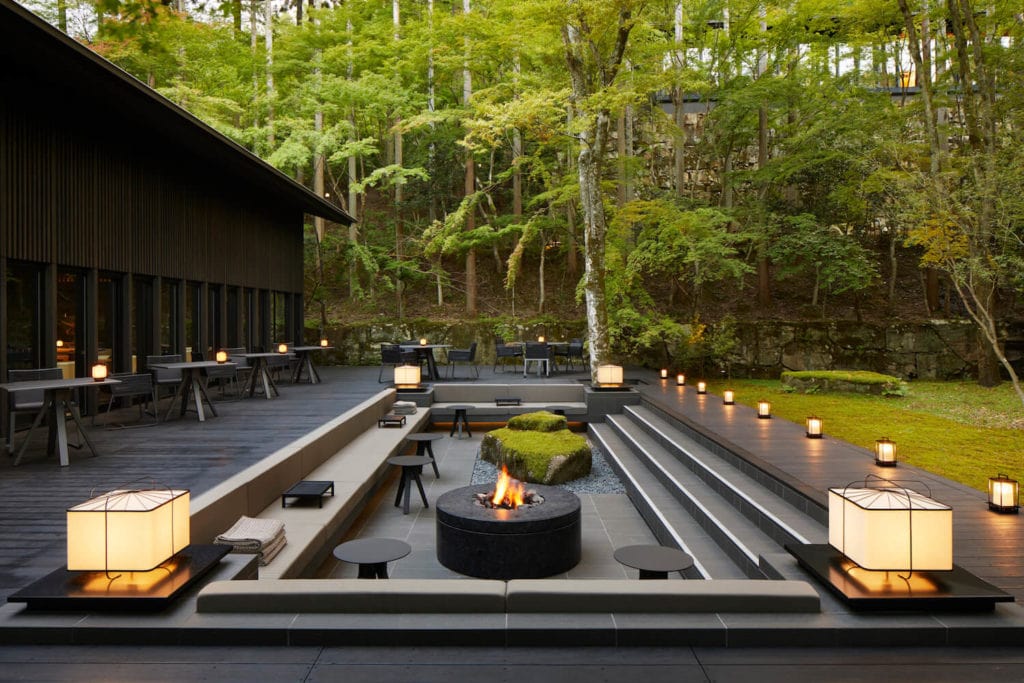
What are the similarities and what are the differences between Aman Tokyo, Amanemu, and Aman Kyoto? Aman Tokyo is an urban wellness destination, so it supports daily wellness for the guests exploring the city as well as the local cosmopolitan Tokyo community. The initial purpose was to offer regular Aman guests pre- and post-programme check-ups. The 2,500-square-metre spa features large Japanese-style hot baths and steam rooms, a light-filled 30-metre pool with panoramic city views, a world-class fitness centre with the latest cardiovascular and weight-training machinery, and dedicated yoga and Pilates studios.
Amanemu, on the other hand, is a primary wellness destination. It provides a serene onsen experience in an idyllic ryokan retreat to focus on mindfulness and wellness. For centuries, the Japanese have understood and utilised the healing powers of the natural mineral hot springs, and Amanemu offers traditional Japanese holistic therapies within individual wellness immersion programmes. The resort its has its very own onsen facilities and these healing springs form the basis of this Immersion targeting recovery and recuperation.
The newest Aman property in Japan, Aman Kyoto, is a nature wellness destination. Guests come here to enjoy the 29 hectares of permanent forest and three hectares of exquisite gardens surrounding Aman Kyoto. The ethereal landscape acts as an extension of the Aman Spa and serves as a serene setting for guided yoga and meditation, as well as Forest Bathing (Shinrin-yoku).
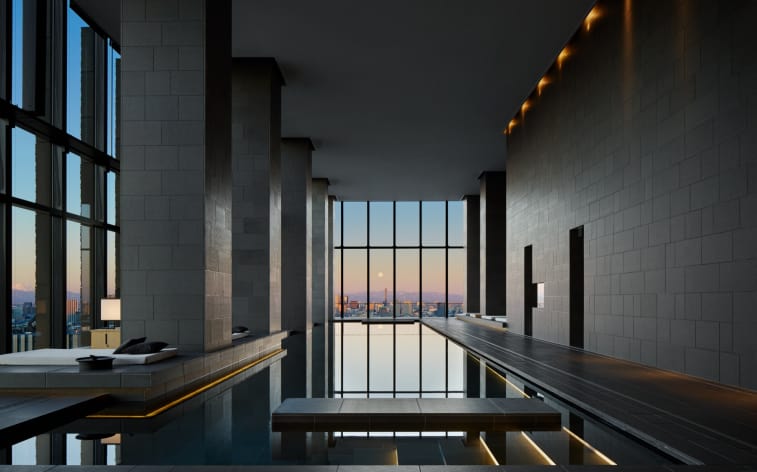
What is the most important aspect of wellness to you? The most fundamental element of living is breathing. In my opinion, breathing quality air is the most important wellness component and essential for longevity. As well as offering a meditative experience through onsen bathing, which provides unlimited physical benefits for detox and healing, practising breathing in the cleanest and freshest air possible will provide the best quality oxygen to your brain and body.
See also: How To Live To 100: The Longevity Secrets Of Okinawa
Japan is widely considered one of the healthiest places in the world, which is largely attributed to diet. How does Aman incorporate this into its on-site restaurant? At Amanemu we offer the most beautiful macrobiotic cuisine in the world, a result of a collaboration between Wellness Manager Chieko Kobayashi and Executive Chef Masanobu Inaba. Inaba strives to create world-class, innovative cuisine while remaining faithful to the traditions and disciplines of traditional Japanese cooking. He is a specialist in vegetarian and macrobiotic foods, and works together with Kobayashi (a Japanese traditional medicine practitioner) to provide guests with personalised, healthy cuisine using the finest seasonal ingredients.
What are the other contributing factors to Japan’s healthy lifestyle? Most of it is habit and philosophy. Bathing every day improves blood circulation, provides a meditative experience, a cleansing feeling every night, and enables deep, quality sleep. A second factor is Ikagai, the Japanese secret to a long and happy life, which is a philosophy about purpose and fulfilment. Ao-Dake-Fumi (self-foot massage on young bamboo) is another lifestyle habit for longevity.
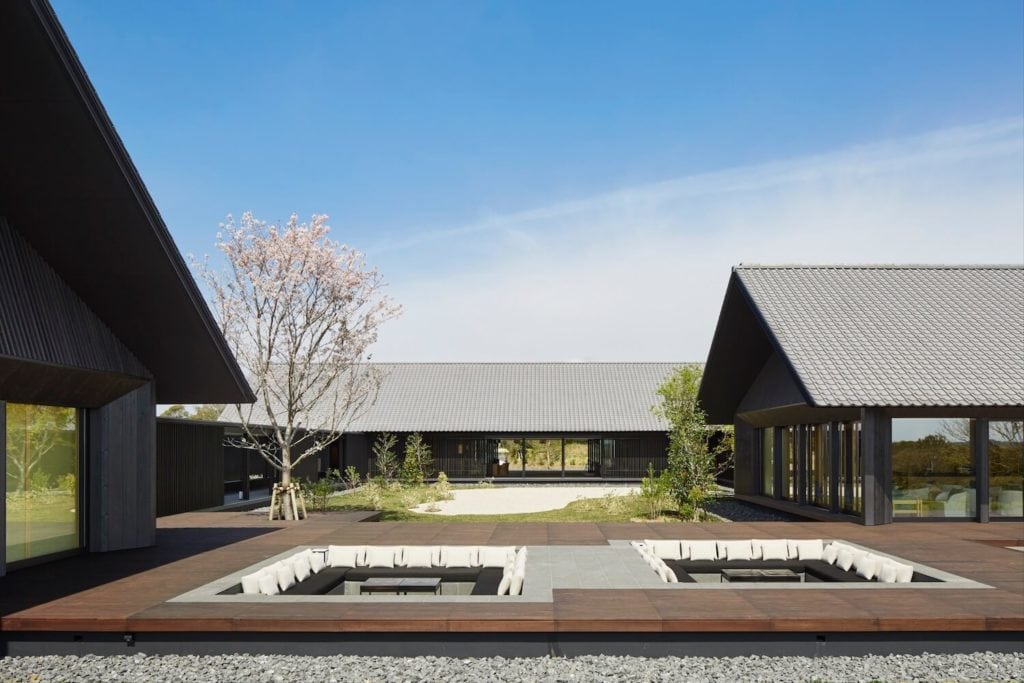
Japan, or ‘J Wellness’ featured prominently as one of the major trends for 2020 at the Global Wellness Summit: how do you see the wellness scene in Japan changing in the next year?As a Japanese person, I’m obviously very supportive of Japan’s wellness traditions being highlighted, and the country’s wellness industry being raised to the next level. Aman is an industry trailblazer, and Amanemu is the country’s first and only primary wellness destination able to welcome international guests and offer comprehensive, meaningful wellness programmes in Japanese and English—Aman can be a role model to others in the country. Now that the world is exploring Japan’s hidden secret of longevity, I’m excited about this opportunity for Japan to expand the wellness industry globally.
Aman is always at the forefront of wellness. What wellness trends are Aman Japan most excited about in 2020? We’re already doing a lot of the major wellness trends predicted for 2020, but some of the ones we’re most excited about are the move towards deep nature experiences; air quality; and water quality.
The healing power of nature cannot be overestimated and nature will become an increasingly valuable resource. While every part of the planet is now a tourist destination and true wilderness no longer exists, people will seek out immersion in ‘deep nature’ that is far from technological and industrial influences. It’s an opportunity for sustainable economic and community development in locations with natural wellness resources, like Amanemu and Aman Kyoto, to provide wellness-adventure experiences with minimal environmental impact.
Air quality will become an increasingly important global and local issue. Air quality is vital for optimal health and brain function, and as more people realise that traffic pollution is more deadly than the road toll we will see greater incentives for electric vehicles and people vacating cities to escape toxic air. Also, expect to see greater importance placed on geomedicine and indoor air quality meters and metrics, along with wellness locations highlighting air quality among their offerings. It’s going to challenge urban spas to provide fresh air havens using the latest in air purification technologies and prompt spas to consider going beyond aromas and signature smells, and design treatments around specific air quality measures.
The final trend is the increased value of pure flowing water will increase and become recognised as a true wellness resource. People are now realising their drinking and bathing water is often contaminated with heavy metals, pesticides, pharmaceutical drugs and other industrial contaminants, and that by 2050 there could be more plastic than fish in the sea. Expect to see a rise in green chemistry, smartphone-compatible water-test kits, new water harvesting, filtering and purification technologies, and more attention to water quality in food outlets, bathing facilities, and tourism and wellness locations.
Contact bookings@compareretreats.com to book your luxury wellness retreat

